As the countdown begins for elections that will usher in Iran's first new president in eight years, all eyes are still on Mahmoud Ahmadinejad, the unpredictable and mercurial man who looks unlikely to go quietly.
Shortly after the 14 June poll, he will have to relinquish his office in Tehran's Pastor street and hand over the keys to his successor. Given the tight timetable for Iranian elections, it is almost impossible to guess who that person will be.
With just six weeks to go, registrations for presidential candidates are only due next week. A number of hopefuls have already announced plans to run but their candidacies will not be valid until the powerful Guardian Council vets their competence and loyalty to the Islamic republic. In 2009, out of 476 registered nominees, only four candidates were allowed to stand – two of them, Mir Hossein Mousavi and Mehdi Karroubi, are under house arrest for refusing to accept the results and for alleging fraud.
The final list of this year's candidates is expected on 23 May and a three-week campaign period will follow.
Despite this, Ahmadinejad has embarked on an extensive schedule of provincial visits in what is suspected to be part of an election strategy designed to promote his favoured candidate. On Wednesday, he was visiting Rasht, the capital of north-western Gilan province, situated on the coast of the Caspian Sea. At the weekend, he went to Tabriz in the East Azerbaijan province . Previously, he visited a number of other provinces, such as Isfahan, Khuzestan and Semnan. He is not alone; other nominees are following his footsteps.
Under Iranian law, the president cannot run for a third term but all the signs indicate that the 57-year-old Ahmadinejad, a relatively young politician in the Iranian hierarchy, has no plans for retirement. On the contrary, he is accused of planning a Putin/Medvedev-style reshuffle by grooming his chief of staff and close confidant, Esfandiar Rahim Mashaei.
In the eyes of loyalists to the supreme leader, Ayatollah Ali Khamenei, today's Ahmadinejad bears no resemblance to the young revolutionary and later Tehran mayor who rose to become president in 2005. Back then, he quickly became the ayatollah's protege, enjoying an unprecedented influence over Iranian politics. Now, Ahmadinejad is at odds with his erstwhile patrons in the Revolutionary Guards and widely seen as a lame duck.
Ahmadinejad has fallen foul of the loyalists because of his unwavering support for Mashaei, who is accused of leading a deviant current in the inner circle of the president, loathed for their advocacy of greater cultural openness and nationalism.
Many are already counting down Ahmadinejad's dying days in office, believing they are his final days in power. Others think he still has a chance and, in case Mashaei is disqualified from running, is issuing challenges to the establishment by threatening to go out all guns blazing and pulling down the edifice of the political system that championed him.
But who is afraid of Ahmadinejad? In February, the president played a secretly filmed tape in the Iranian parliament - to the astonishment of millions of Iranians listening on national radio - that revealed the speaker's brother was allegedly trading on his sibling's influence for financial gain.
Many fear that the president's team have many more secret tapes and videos that could pose serious challenges to the Islamic republic; others say that is a bluff. "They have installed hidden cameras, listening devices in order to collect information and release them in public," Mohammed Ali Montazeri, a judicial official, warned this week.
Baztab, a conservative news website critical of the government, said in a report that Ahmadinejad was rumoured to possess a tape that shows he received a phone call from the authorities right after the 2009 elections telling him they planned to announce that he had won millions more votes than the real tally. This was denied by the president's office this week and Baztab was taken offline on Wednesday.
"There are things to say..." Ahmadinejad said on a recent visit to the holy city of Qom, promising to reveal them at a future date. The president's menacing language has infuriated his rivals and, as elections approach, everyone is watching for any unexpected movements that may embarrass the supreme leader.
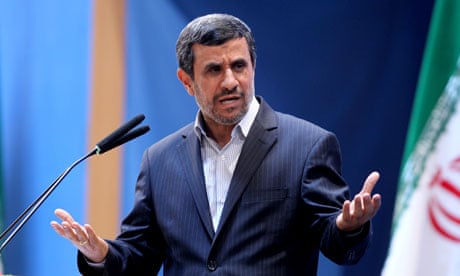
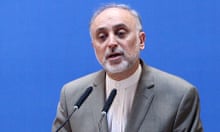
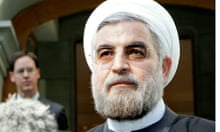
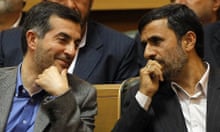
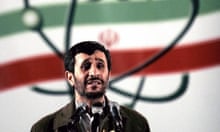
Comments (…)
Sign in or create your Guardian account to join the discussion